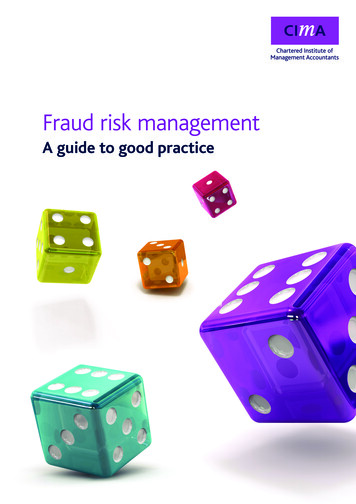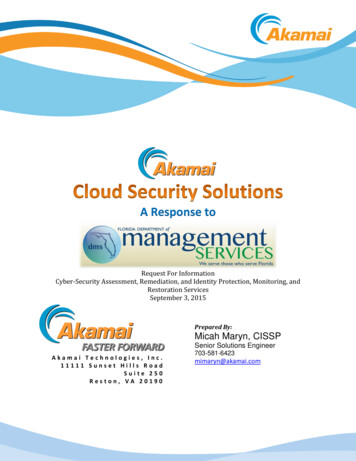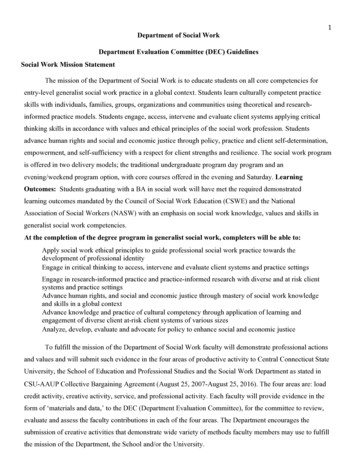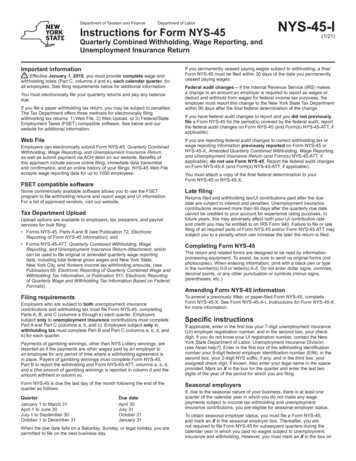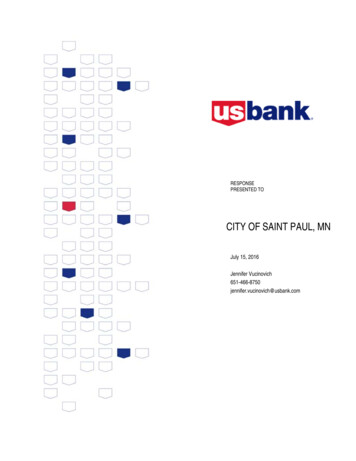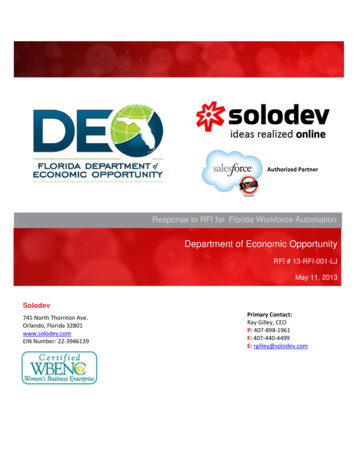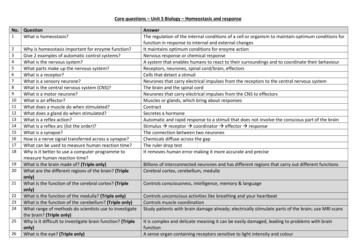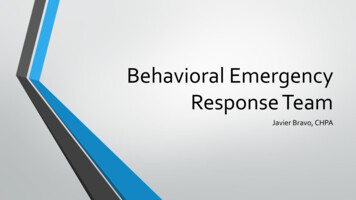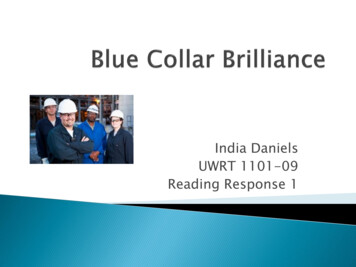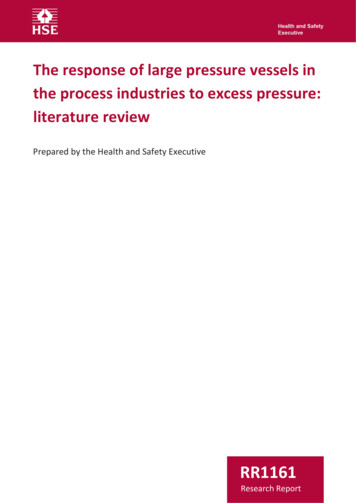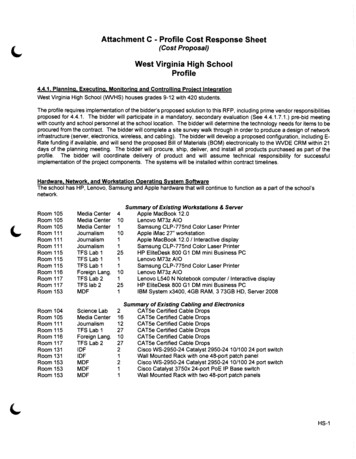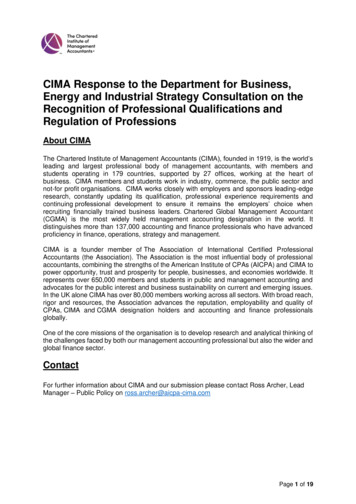
Transcription
CIMA Response to the Department for Business,Energy and Industrial Strategy Consultation on theRecognition of Professional Qualifications andRegulation of ProfessionsAbout CIMAThe Chartered Institute of Management Accountants (CIMA), founded in 1919, is the world’sleading and largest professional body of management accountants, with members andstudents operating in 179 countries, supported by 27 offices, working at the heart ofbusiness. CIMA members and students work in industry, commerce, the public sector andnot-for profit organisations. CIMA works closely with employers and sponsors leading-edgeresearch, constantly updating its qualification, professional experience requirements andcontinuing professional development to ensure it remains the employers’ choice whenrecruiting financially trained business leaders. Chartered Global Management Accountant(CGMA) is the most widely held management accounting designation in the world. Itdistinguishes more than 137,000 accounting and finance professionals who have advancedproficiency in finance, operations, strategy and management.CIMA is a founder member of The Association of International Certified ProfessionalAccountants (the Association). The Association is the most influential body of professionalaccountants, combining the strengths of the American Institute of CPAs (AICPA) and CIMA topower opportunity, trust and prosperity for people, businesses, and economies worldwide. Itrepresents over 650,000 members and students in public and management accounting andadvocates for the public interest and business sustainability on current and emerging issues.In the UK alone CIMA has over 80,000 members working across all sectors. With broad reach,rigor and resources, the Association advances the reputation, employability and quality ofCPAs, CIMA and CGMA designation holders and accounting and finance professionalsglobally.One of the core missions of the organisation is to develop research and analytical thinking ofthe challenges faced by both our management accounting professional but also the wider andglobal finance sector.ContactFor further information about CIMA and our submission please contact Ross Archer, LeadManager – Public Policy on ross.archer@aicpa-cima.comPage 1 of 19
IntroductionWe welcome the opportunity to respond to this consultation by the Department for Business,Energy and Industrial Strategy on the Recognition of Professional Qualifications andRegulation of Professions.This is an important area, especially now when the UK seeks new global tradingpartnerships as the UK leaves the European Union.The skills and competencies of management accountants are those that are most in demandto help organisations recover and prosper in a COVID/post COVID era. The ability to plan, toremodel and lead strategic change as well as the key soft skills of leadership,communication and collaboration are inherent in the CIMA professional qualification. In apost-Brexit, post-COVID environment global economic prosperity for the UK will come fromdriving new commercial partnerships and we believe management accountants will be at theforefront of these negotiations.Our main points from this submission are: Having professional associations that impose rules, ethics, standards and aprofessional outlook on their members underpins public trust in our profession andthe services our members provide.CIMA is a meritocracy and has always had open access to students from allbackgrounds and our route to qualification means students without access touniversity education can still study with us and become a Chartered ManagementAccountant.We identify key skills and competencies and turn them into an educational process todevelop our students and members to meet the challenges of employers and thusdrive the wider economic growth and productivity across the UK.The British government should actively promote the strength of UK professional bodyeducation and accreditation in future trade deals.Page 2 of 19
Answers to Consultation Questions1. Please tell us in which nation(s) you are a regulator of a profession:We are a regulator across all nations of the UK as well as many others across the world. Weare the largest management accounting body in the world and as such regulate ourmembers and set standards for them globally.2. Please state the sector(s) you regulate within.CIMA members cover all sectors of the economy, but we are a regulator within theaccountancy profession and regulate our members who are trained managementaccountants.3. Please state the profession(s) you regulate.We are a regulator of management accountants.4. Please outline the rationale for regulation within your sector. Listed below aresome non-exhaustive possible rationales for regulation you may like to considerin your answer. In each instance, please explain their importance to regulationwithin your sectorThe work of CIMA-qualified Chartered Global Management Accountants (CGMAs) isfundamental to the creation and success of many businesses across the world; and inmaintaining the confidence of investors, markets and the wider public in those ventures.CIMA underpins that work, by ensuring that those who employ, deal with or rely on theprofessional opinion of any CGMA can be sure that: CGMAs have received professional education, equivalent to a taught masters’ degree,developed to equip them with the right financial and leadership skills to succeed inbusiness now and in the future;All CGMAs are subject to the CIMA Code of Ethics, which requires the them to respectthe fundamental principles of Integrity, Objectivity, Professional competence and duecare, Confidentiality, and Professional behaviour in their professional lives;CGMAs will remain up to date throughout their careers, because of the ongoing trainingand education we make available to all members, the growth mindset encouraged bytheir training as well as their professional duty to undertake continuous professionaldevelopment (CPD) imposed by CIMA’s Royal Charter, Bye-laws and Regulations;All those CGMAs who deal directly with the public (Members in Practice) are licensed byus to do so, must maintain appropriate service standards, be insured and are monitoredto ensure compliance with the AML legislation; andCGMAs who fall short of acceptable standards can be held to account under ourdisciplinary procedures.All these factors encourage and build trust in CGMAs and protect consumers, businessesand markets – encapsulated in our stated aim to be the voice of a dynamic accountingprofession, protecting the public interest and powering trust, opportunity and prosperityworldwide. It is significant that as accountancy is only regulated on a voluntary basis in thePage 3 of 19
UK (and many other jurisdictions), our membership continues to grow with over 80,000members in the UK, as aspiring professional recognise the competitive advantage that CIMAregulation brings as a denominator of trust and reputable service.(N.B. having passed the final CIMA examinations and having been admitted to Associatemembership of CIMA, members are entitled to use the suffix letters “ACMA”. Associates whoare admitted to Fellowship are entitled to use the letters “FCMA”. Both ACMAs and FCMAsare also permitted to use the designation CGMA (Chartered Global ManagementAccountant) after their name. For ease of reference, we use the designation CGMAthroughout, save when we refer to the qualification ACMA in paragraph 11 below).5. Please outline any evidence you have on the consumer protection impactsprovided by your regulations.The objects of CIMA in its Royal Charter include a duty to act in the public interest. Theprotection of members of the public and businesses from misconduct or incompetence byCIMA members is part of that remit. CIMA therefore operates a robust and fair disciplinaryprocess, administered by independent disciplinary panels, which consider complaints ofmisconduct against CIMA members. All CIMA members are required to undertake CPD as acondition of membership to ensure that all members retain the levels of competence thatunderpin trust in the profession. We monitor compliance with this requirement and our RoyalCharter, Bye-laws and Regulations contain a system of fixed fee penalties and the possibilityof referral into our conduct proceedings for non-compliance. Lastly, CIMA promotes asignificant amount of guidance on ethical and professional standards to our membership toencourage the highest standards of professionalism.As part of the Accountancy Scheme in the United Kingdom, CIMA is subject to oversight bythe Financial Reporting Council. As a Prescribed Accountancy Body in the Republic ofIreland, CIMA is similarly subject to the oversight of the Irish Auditing and AccountingStandards Authority. Both organisations publish annual reports on the accountingprofessions in their jurisdictions, based on data we supply – see here for the FRC report andhere for the IAASA report, though in both instances there is sparse data on the impact onconsumer protection.Our own figures suggest that over the past three years, the number of complaints andattendant disciplinary action we have taken, has remained static. From approximately 100enquiries every year, we have identified between 47 and 53 cases that warrant investigationas misconduct under our rules, resulting in approximately 25 disciplinary hearings per year.We interpret these figures as consistent with the levels of complaint received by similarregulators and would suggest that this indicates that there is a reasonable level ofawareness of the complaints mechanism amongst members of the public.In the area of Anti-Money Laundering supervision, we are obliged by law to supervise thosemembers (Members in Practice) who offer services directly to the public. As to the extent ofthe effectiveness of those measures, please refer to the report of the Office for ProfessionalBody AML Supervision.Page 4 of 19
6. Please outline your process(es) of recognising someone with an internationalqualification. In your answer, please include details of how this differs from theprocess of recognising a domestic applicant, the rationale for this/ the reasonswhy this is the case, and the costs of administering this route.If you have different processes for different international routes (e.g. forcandidates from the EU, USA, Australia, or due to any Mutual RecognitionAgreements you hold), please include details on the differences between them.Having built a database of qualifications, informed by our accreditation department, bothfrom universities and other professional bodies with oversight from IFAC we now have aglobal recognition policy for qualifications.\On this data we have been able to establish transparent gateways into the professionalqualification based on prior qualifications and professional experience, which does notdifferentiate between domestic or international qualifications. Potential students can accessour exemptions database and look up their university course or professional qualification anddetermine at what point they would enter the CIMA professional qualification. For thosecoming through our experiential pathways where we recognise practical work experience theapplicants have to complete a rigorous assessment and this is reviewed by a panelappointed by the CIMA Council prior to acceptance of entry.We also offer specific routes for Apprentices in England at level 4 and level 7.We review the success of students coming from Universities and other professional bodiesso that we best accredit prior learning, and this provides a feedback path to review the actualentry point (upwards and downwards).7. Please outline any additional steps and their resource implications that you face inprocessing applicants with international qualifications?There are no additional steps or resource implications we face in processing applicants withinternational qualifications. However, there would be cost implications if CIMA were to reaccredit international professional qualifications.8. With reference to any of the additional steps outlined above, what would yousuggest are the priorities for the UK Government in considering future ways torecognise international qualifications? Please include any details on what an idealsystem could look like, as well as how it could operate. Please consider what thepriorities would be for the profession you regulateFrom the 1 January 2021 the UK will have a new points-based immigration system that willtreat EU and non-EU citizens the same. Under the points-based immigration system, anyonecoming to the UK for work must meet a specific set of requirements for which they will scorepoints, with visas awarded to those who gain enough points.We believe the government should review the points-based system to recognised the workUK based chartered bodies do in providing high quality education not only in this country, butacross the globe.Page 5 of 19
Figures from the government show that education exports are worth at least 21.4 billion tothe UK economy.1 Chartered body education is a key part of that export. Due to this webelieve that the new immigration system should take account of the value of UK basedchartered body education and points should be awarded for having successfully completedand kept such a qualification up to date.In the case of the accountancy and audit sector it is common for professionals in thisindustry to move within companies, practices and firms globally for periods of time to carryout work such as audits or in the case of our members they may move within companies tohead up finance functions overseas or in new operations. We believe the new immigrationsystem could help take account of this by allowing professionals with relevant professionalbody membership and qualifications an appropriate number of immigration points to facilitatethese migration movements.In the case of our members who hold the CGMA designation this is an equivalentqualification globally to a masters and takes years of study and practical experience to gain.We believe this should, under the new immigration system, earn a certain amount of pointsfor an individual looking to migrate to the UK as this would encourage investment in UKeducation and bring more skilled individuals into the UK who have been rigorously testedagainst a global standard and who agree to be governed by our professional standards andethics policies.We recognise there is a global talent route under the new immigration scheme, but this doesnot contain any qualifications in the accountancy and finance sector. This route should bereviewed to see what other professional bodies such as chartered bodies could be includedin this route.By allowing immigration points for being a member of a regulated professional body andholding an up-to-date qualification from such a body the government would bedemonstrating the value they see in UK education of all kinds from colleges, universitiesthrough to professional bodies. Such a move is also likely to increase the export value ofsuch an education and mean UK professional and chartered bodies would be a biggercontributor to the UK economy as students globally decided to invest in their education andskills development though them.9. Do you require legislation to give you powers to make changes to yourinternational recognition routes?We do not require UK legislation to make changes to our international recognition vernment/uploads/system/uploads/attachment data/file/850263/SFR Education Exports 2017 FINAL.pdfPage 6 of 19
10. What level of dialogue do you maintain with your international counterparts?Please outline the benefits and challenges to cooperation. Please also outline ifyou are a member of any international networks of regulators, what they are andyour experience with them.CIMA and the Association are regulated by and have interactions with many differentregulators across the globe.We are a founder member of the International Federation of Accountants (IFAC), as well asmembers of regional professional body forums such as Accountancy Europe and the PanAfrican Federation of Accountants (PAFA).CIMA is a founder member of The Association of International Certified ProfessionalAccountants (the Association) is the most influential body of professional accountants,combining the strengths of the American Institute of CPAs (AICPA) and CIMA to poweropportunity, trust and prosperity for people, businesses and economies worldwide. Itrepresents over 650,000 members and students in public and management accounting andadvocates for the public interest and business sustainability on current and emerging issues.With broad reach, rigor and resources, the Association advances the reputation,employability and quality of CPAs, CIMA and CGMA designation holders and accountingand finance professionals globallyIn the UK CIMA is regulated by the Financial Reporting Council and as a PrescribedAccountancy Body in the Republic of Ireland, CIMA is similarly subject to the oversight of theIrish Auditing and Accounting Standards Authority. Also, as an end point assessororganisation (EPAO) for apprenticeships we have interactions with Ofsted and the Instituteof Apprenticeships in the UK.We have mutual recognition agreements and memoranda of understanding with a number ofinternational accounting and financial bodies, including CPA Australia, the Institute of CostAccountants of India, the South African Revenue Service and the Colombo Stock Exchange.11. What are your priorities for supporting UK professionals on your register to haveaccess to their profession in other countries? Please outline any Governmentsupport that would helpAs we have answered in Question 8 steps to change the immigration points system to takeaccount for membership and qualifications of chartered bodies would greatly help withaccess to the profession between countries.Another area that is key is the UK government having a focus in any future trade deals andagreements that mutual recognition of qualifications including those from chartered bodies isincluded within agreements. This is especially important where the National body is both theregulator and the institute. This would allow our members to operate effectively in overseasmarkets without having to take further exams.In negotiations with the European Union, the UK government should focus on securingrecognition of professional qualifications within it.Page 7 of 19
The Withdrawal Agreement provides for a transition period until 31 December 2020. Thisallows the current frictionless arrangements (including mutual recognition of professionalqualifications and the right to work and establish businesses) to continue, until a long-termtrading relationship is agreed between the UK and the EU-27. If by the 31 December 2020there is no deal in place we will be in the realms of a "no deal" Brexit.Recognition of professional qualifications currently falls under Directive 2005/36/EC,implemented in UK law by the EU (Recognition of Professional Qualifications) Regulations2015 (as amended by the Recognition of Professional Qualifications (Amendment etc.) (EUExit) Regulations 2019). The title “chartered management accountant” which our membersuse is not automatically recognised under the Directive. Instead, the ACMA qualification issubject to the “General System” of recognition. This allows recognition of a qualification heldby an EU citizen in another EU country when the level of professional qualification is at leastequivalent to the level immediately below the level required in the host country.In the absence of a trade deal that covers professional qualifications, as of 1 January 2021United Kingdom nationals will be third country nationals. Directive 2005/36/EC will no longerapply to them. This means that any decisions about the recognition of CIMA qualifications ofUnited Kingdom nationals i
CIMA Response to the Department for Business, Energy and Industrial Strategy Consultation on the Recognition of Professional Qualifications and Regulation of Professions About CIMA The Chartered Institute of Manag
